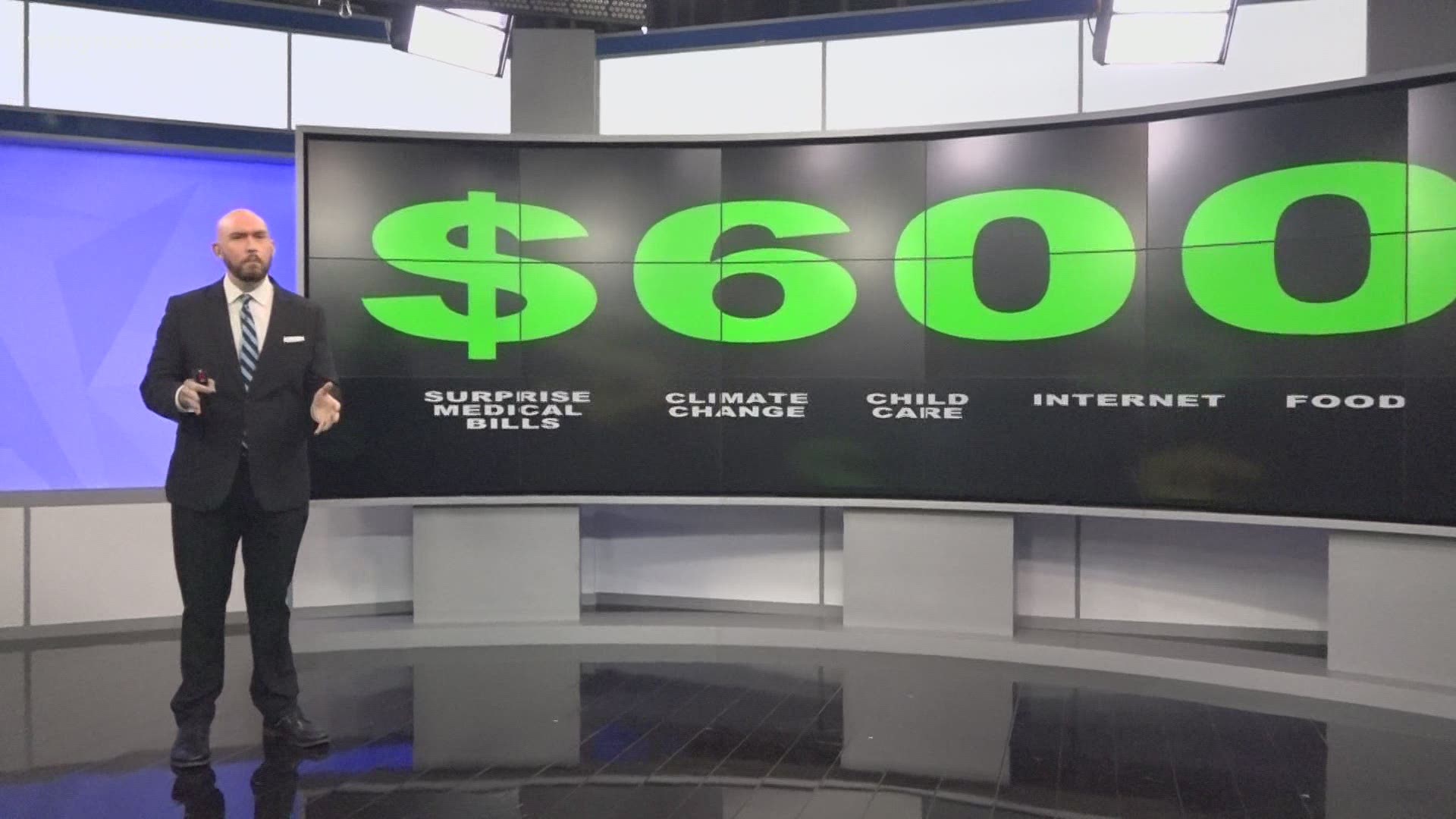GREENSBORO, N.C. — The $600 payment is the big headline of the Coronavirus Relief Bill. It's getting most of the attention, but there are other ways it helps you, like, tackling surprise medical bills.
Surprise medical bills are often received when one of the medical practitioner's ends up being out of network for your insurance plan even though you went to a hospital that is in-network.
When Congress approved the latest Coronavirus Relief Bill, it also banned hospitals from charging you for out-of-network treatments unless you agree first.
The 5,593-page bill is chalked full of stuff like this. For example, the bill also fights climate change by regulating greenhouse gas produced by air-conditioners and refrigerators. It also sets aside $35 billion for wind, solar and more clean energy development.
There is $15 billion in grants to keep music venues and other arts programs alive. Add in another $82 billion for schools, $7 billion for expanding high-speed internet, $10 billion to help with child care and $13 billion to boost food stamps programs.
That's still only part of the $900 billion bill. A total that leaders in Congress say is a down payment on more relief needed in the new year.
"So yes, there is more work to do," said House Speaker Nancy Pelosi. "And it will cost some money, but it will protect jobs, and most importantly, it will meet the needs of the American people to crush the virus."
There has also been a lot of talk on social media about the relief bill including money for foreign aid. But fact-checkers at Newsweek show that's misleading.
Here's why: To help get the coronavirus relief package passed faster, Congress attached it to the annual spending bill. That part of the bill included the foreign aide, not the relief package.

